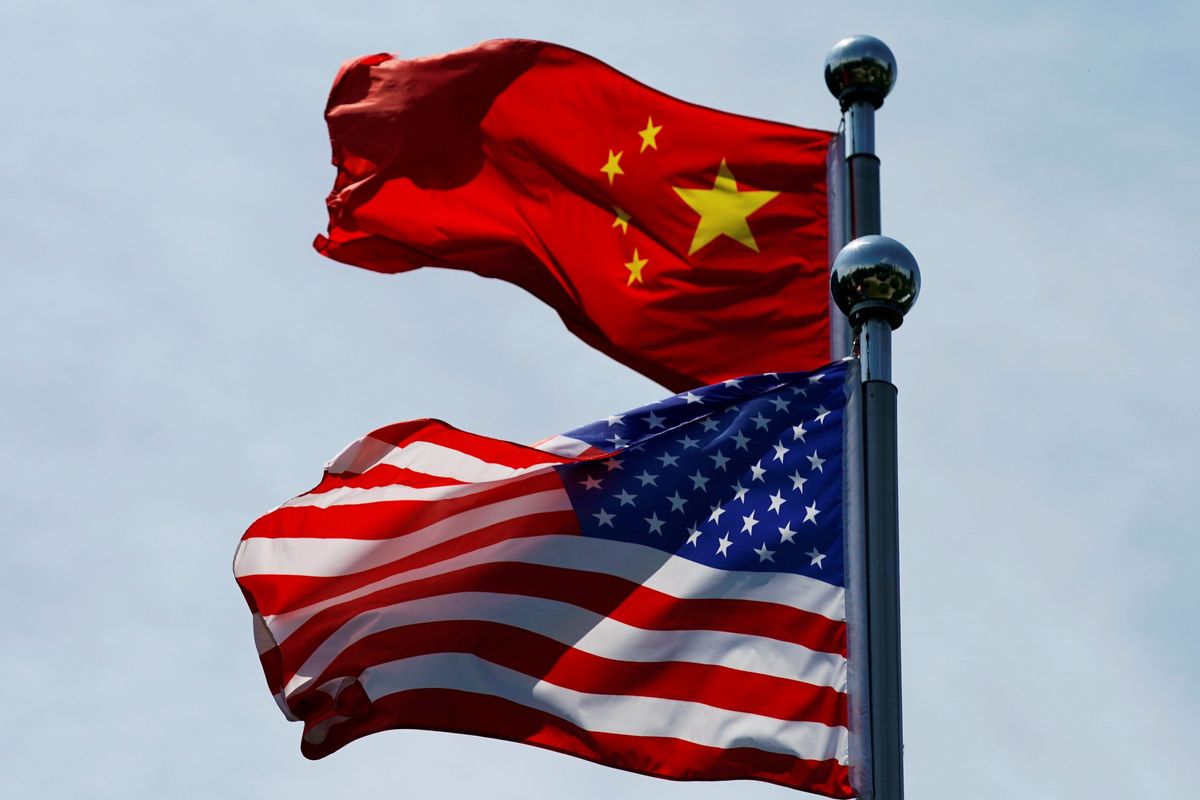Washington targets financial institutions over China’s Hong Kong crackdown

A few minutes every morning is all you need.
Stay up to date on the world's Headlines and Human Stories. It's fun, it's factual, it's fluff-free.
In June, US Secretary of State Mike Pompeo had accused global banks like HSBC of corporate subservience to Beijing.
The United States Department of State on Wednesday, October 14, threatened tough sanctions against financial institutions involved in business activities with individuals that the US considers responsible for China’s crackdown in Hong Kong.
In a report to the US Congress, required under the Hong Kong Autonomy Act, the State Department said that it would identify the financial institutions within two months.
The report stated that “the President shall impose certain blocking sanctions on the listed persons (in the report) and subject them to visa restrictions and exclusion from the United States. Furthermore … not earlier than 30 days and not later than 60 days following the submission of this report, the Secretary of the Treasury, in consultation with the Secretary of State, shall submit a report to Congress that identifies any foreign financial institutions (FFI) that knowingly conduct a significant transaction with the foreign persons listed in this report.”
The State Department named Hong Kong’s Chief Executive Carrie Lam along with several other top Hong Kong officials in the report, including senior Chinese Communist Party (CCP) members Xia Baolong and Luo Huining, Hong Kong, security secretary John Lee and Eric Chan of the national security commission and Hong Kong police chief Chris Tang.
In August, Washington slapped sanctions on these officials, accusing them of curbing freedom and cracking down on protesters during the pro-democracy movement that started in the region last year.
“The release of this report underscores our ongoing objection to Beijing’s actions that are intentionally designed to erode the freedoms of the people of Hong Kong and impose the CCP’s [Chinese Communist Party’s] oppressive policies,” State Department spokeswoman Morgan Ortagus said in a statement on Wednesday.
“The Chinese Communist Party (CCP) has systematically dismantled the autonomy that Beijing promised to the Hong Kong people and the world in a UN-registered treaty. Through the imposition of the National Security Law, the CCP has crippled democratic institutions, human rights, judicial independence, and individual freedoms in Hong Kong,” Ortagus added.
China responded to Washington’s threat by promising countermeasures if the US adopted a punitive approach against banks and financial institutions over Beijing’s actions in Hong Kong.
“The United States should correct its mistake and stop interfering,” said Foreign Ministry spokesman Zhao Lijian at a news briefing in Beijing on Thursday.
The Hong Kong Autonomy Act
President Donald Trump signed the Hong Kong Autonomy Act (HKAA) on July 14, 2020, which provides for mandatory sanctions against individuals and financial institutions in response to China’s controversial new national security law in Hong Kong.
According to Section 5 (a) of the HKAA, the Secretary of State was required to submit a report identifying any “foreign person” believed to be contributing to China’s failure to meet its obligations under the Sino-British Joint Declaration or Hong Kong’s Basic Law within 90 days after the legislation was passed.
Section 5 (b) of the Act states that no more than 60 days after the submission of the Secretary of State’s report, the Treasury Secretary must identify any “foreign financial institution” (FFI) knowingly conducting significant financial transactions with a foreign person named in the report furnished by the Secretary of State.
The Act allows the US president to impose sanctions on an identified foreign person primarily in the form of freezing of assets and associated prohibitions on dealings of any kind. It also calls for 10 possible sanctions on an identified FFI, with at least five of them to be imposed within a year after an FFI is named in the treasury secretary’s report.
Banks under fire
In June, the US Secretary of State Mike Pompeo accused HSBC Holdings plc of corporate subservience to Beijing. Pompeo’s scathing criticism came following HSBC Asia-Pacific chief executive officer Peter Wong’s signing of a petition that supported the imposition of China’s national security law in Hong Kong. Washington’s attack on HSBC was backed by the British government.
Hong Kong is central to HSBC’s growth and expansion strategy in China, making it imperative for the bank to maintain a cordial relationship with Beijing.
To avoid offending Beijing, HSBC and several other global banks such as Standard Chartered PLC have been trying to steer clear of existing or potential clients with possible connections to the pro-democracy movement in Hong Kong.
This had led to increased pressure on these banks with China on one side and the US and Britain on the other.
The State Department report comes at a time when US-China ties have greatly deteriorated over the last few months, with China’s alleged human rights violations and curbs on individual freedom in Hong Kong becoming a major reason for conflict between the two global powers.
Recently, dozens of democracy supporters were arrested in Hong Kong on China’s National Day, October 1, for allegedly disobeying a protest ban and participating in unauthorized assemblies.
In September, Hong Kong authorities declared curbs on press freedom with an announcement that the credentials of certain news outlets and journalists would no longer be recognized. This led to fears among media personnel in the region that the state may prosecute them over simply quoting or photographing protesters’ independence slogans.
Hong Kong has been on tenterhooks since July of this year when China introduced the new national security law with an immediate aim to curb pro-democracy protests in the region. The Hong Kong police have received widespread criticism for allegedly using forceful means to disperse protestors and attacking journalists covering the protests.
More than 10,000 pro-democracy protesters have reportedly been detained by the Hong Kong police since 2019 for agitating against the government.
Have a tip or story? Get in touch with our reporters at tips@themilsource.com




Comments ()